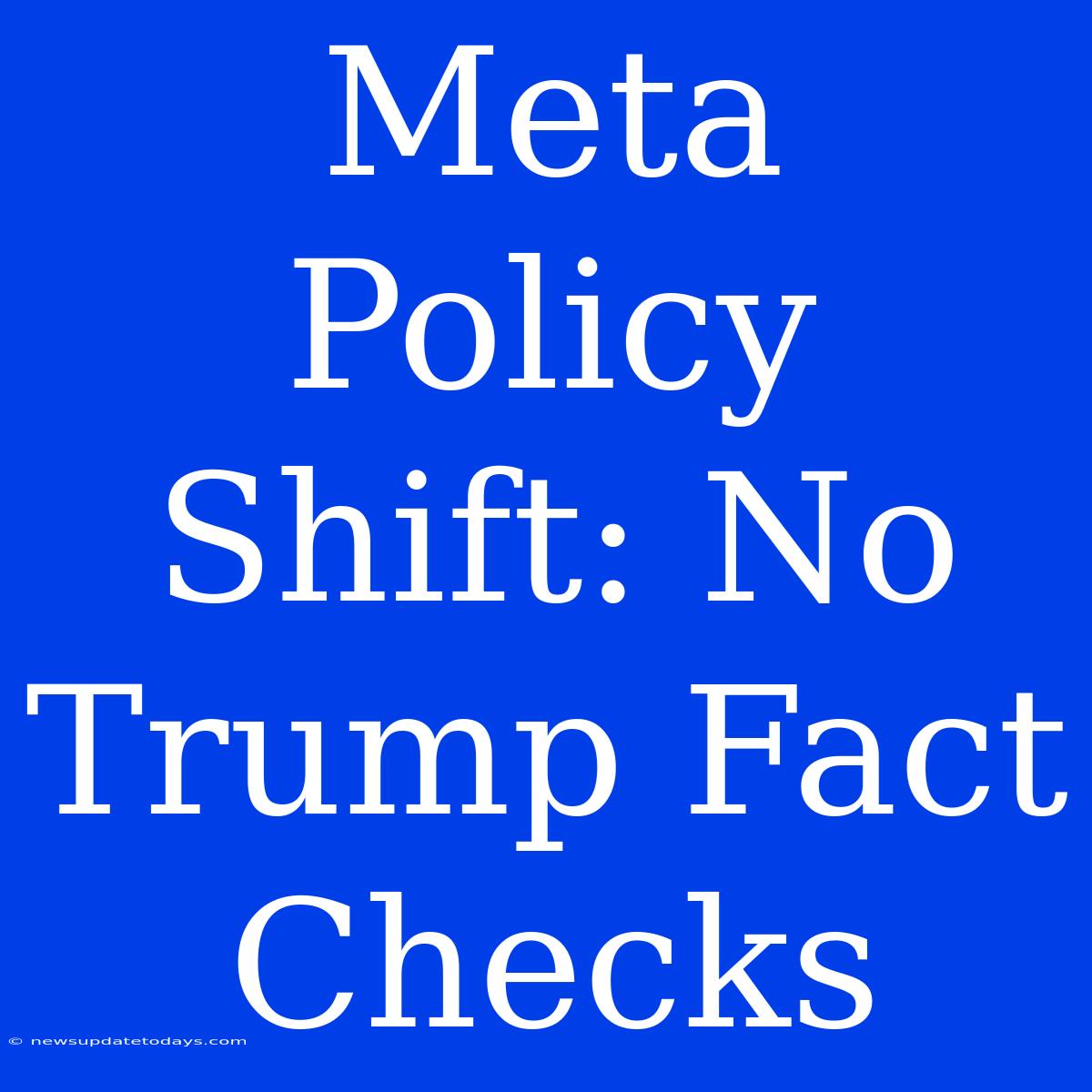Meta's Policy Shift: No More Trump Fact Checks? The Implications
Meta's recent decision to stop fact-checking posts from former President Donald Trump has sent shockwaves through the political and tech worlds. This policy shift raises significant questions about the platform's role in combating misinformation and its commitment to upholding truth in political discourse. This article delves into the details of Meta's decision, its potential consequences, and the broader implications for social media platforms and their responsibilities.
Why the Change? Meta's Justification
Meta's official statement cites a change in its approach to content moderation. They argue that the current system, reliant on third-party fact-checkers, is not effective enough and that focusing on removing content that incites violence is a more impactful strategy. This shift prioritizes a different set of harms – direct calls to violence – over the spread of misinformation. They claim this change is not an endorsement of Trump's statements but rather a reflection of their evolving content moderation policies.
Criticisms and Concerns:
This decision has been met with widespread criticism from various corners. Many argue that it allows for the unchecked spread of misinformation and false narratives, potentially influencing public opinion and undermining democratic processes. Critics point out that Trump's history of making false or misleading statements is well documented and that Meta's decision effectively grants him a platform to disseminate disinformation without accountability.
-
Undermining Fact-Checking: The move is seen as a significant blow to the already challenged field of fact-checking. It raises doubts about the effectiveness and necessity of such initiatives, despite their importance in combating the spread of false information online.
-
Setting a Dangerous Precedent: Some fear this decision could set a precedent for other platforms, potentially leading to a widespread relaxation of content moderation policies and a further erosion of trust in online information.
-
Political Implications: The decision has obvious political implications, particularly given the upcoming US Presidential elections. Allowing unchecked dissemination of misinformation could significantly impact the electoral process.
The Broader Context: Content Moderation Challenges
Meta's decision highlights the ongoing struggle faced by social media platforms in balancing free speech with the need to combat misinformation. The sheer volume of content shared online makes comprehensive fact-checking almost impossible. Furthermore, the definition of "misinformation" itself can be contested and subject to differing interpretations, further complicating the problem. Finding effective and sustainable solutions remains a significant challenge for the industry.
What Happens Next? The Future of Content Moderation
The long-term consequences of Meta's decision remain to be seen. It will undoubtedly influence the strategies and policies adopted by other social media companies. The debate surrounding content moderation is far from over, and this move is likely to fuel further discussions about the responsibilities of tech platforms in shaping online discourse and protecting the integrity of democratic processes. The question remains: Will this decision lead to a more chaotic information environment, or will it ultimately force a reassessment of how we approach content moderation in the digital age?
Keywords: Meta, Facebook, Donald Trump, fact-checking, misinformation, content moderation, social media, free speech, election, disinformation, policy change, political implications.

